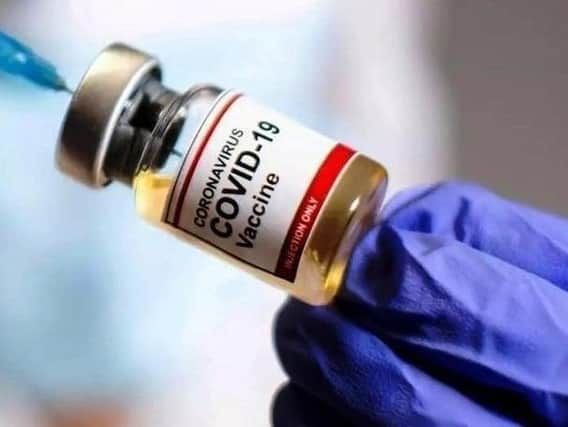Irish column: The health service


Nuair a bhí mé an-óg chuaigh an teaghlach ó Ghleann Gad go hAlbain. Caithfidh mé a rá go raibh an t-ádh dearg orainn maidir le cúram sláinte ansin.
Bhí gach rud saor in aisce sa NHS beagnach: sú oráiste (sobhlasta); ola ae troisc (Cosúil leis na páistí eile, níor mhaith liom é) agus bainne do pháistí beaga . Bhí leigheas ar fáil do gach duine. Bhí seisear dochtúirí do 15,000 cónaitheoir i mbaile s’againne más buan mo chuimhne. Bhí cúram fiacla saor againn - ach ní raibh meas againn air sin, ní raibh na háiseanna céanna ag an bheirt fhiaclóirí is atá acu anois. Bhí beirt radharceolaí ann. Bhí dhá otharlann ann- ceann amháin ceithre mhíle ón bhaile, agus ceann eile sé mhíle. Chomh maith leis sin, bhí teach téarnaimh agus oispidéal beag do ghalair thógálacha ar imeall an bhaile. Bhí clinic sa bhaile fosta. Gealladh cúram don phobal ‘ón cliabhán go dtí an uaigh’ agus fuair muid cúram an-mhaith.
Advertisement
Hide AdAdvertisement
Hide AdSin mar a bhí sé i dTuaisceart Éireann fosta, a bheag nó a mhór, ag an am. Ach rinneadh ionsaí ar na seirbhísí NHS de réir a chéile. Cuirtear brú ar ranna éagsúla na seirbhíse. Bíonn scuainí ag na gnáthdhochtúirí anois. Tá na hoibrithe inár n-otharlann áitiúil traochta. Ach d’ainneoin sin, leanann siad ar aghaidh- ar phá íseal. Fuair siad bualadh bos don obair a rinne siad nuair a tháinig Covid. Ach ní leor sin. Bíonn ar dhochtúir táillí a íoc agus é ag traenáil. Ní dhéantar dochtúir thar oíche - caithfidh sé staidéar a dhéanamh ar feadh sé bliana ar a laghad. Bíonn gearáin faoin mholl a bhíonn ar na hotharcharranna. Ach ní ar na tiománaithe atá an locht. Níl feithiclí go leor ann. Tá an locht ar fheisirí in Westminster agus sa pharlaimint bheag i mBéal Feirste. Ní thuigeann siad cé na tosaíochtaí atá acu. Cúpla sampla. RHI (‘Cash for Ash’): tuairim is £500 milliún; HS2 (Córas traenacha ardluais i Sasana): thart fá £106 billiún.Tá na céadta sampla eile ann, ar ndóigh, conarthaí sláinte do chomhlachtaí príobháideacha ina measc.
ENGLISH
The family moved from Glengad to Scotland when I was very young. I must say that we were very fortunate regarding health care there.
Almost everything was free: orange juice (delicious); cod-liver oil (Like other children, I didn’t like it.) And there was free milk for young children. There was free medicine for everybody. There were six doctors for 15,000 residents in our town, if I remember rightly. There was dental care- but we did not like that - the dentists did not have the same resources as they have now. There were two opticians. There were two hospitals - one four miles away and the other six miles away. As well as that, there was a hospital for convalescent patients and a small infectious diseases hospital just outside of the town.There was also a clinic.The people were guaranteed care ‘from the cradle to the grave’ and we got the best of attention.
That is how things were in Northern Ireland, more or less. But the NHS gradually came under attack. It is no longer a priority. Pressure is being put on the various parts of the service.The general practitioners have long queues. The workers in the local hospital are exhausted. But despite that they carry on working - for low pay.
Advertisement
Hide AdAdvertisement
Hide AdThey were clapped for the work they did when Covid arrived. But that is not enough. Doctors have to pay fees while they are training.
Doctors are not created overnight: they have to spend at least six years studying. There are complaints about ambulance delays. But the drivers are not at fault.
There are not enough vehicles. Representatives in Westminster and in the little parliament in Belfast are to blame.
They do not have the right priorities. A couple of examples. RHI (‘Cash for Ash’) : around £500 million; HS2 (a high speed train system in England) £106 billion. There are plenty of other examples, of course, including health contracts to private companies.
Comment Guidelines
National World encourages reader discussion on our stories. User feedback, insights and back-and-forth exchanges add a rich layer of context to reporting. Please review our Community Guidelines before commenting.